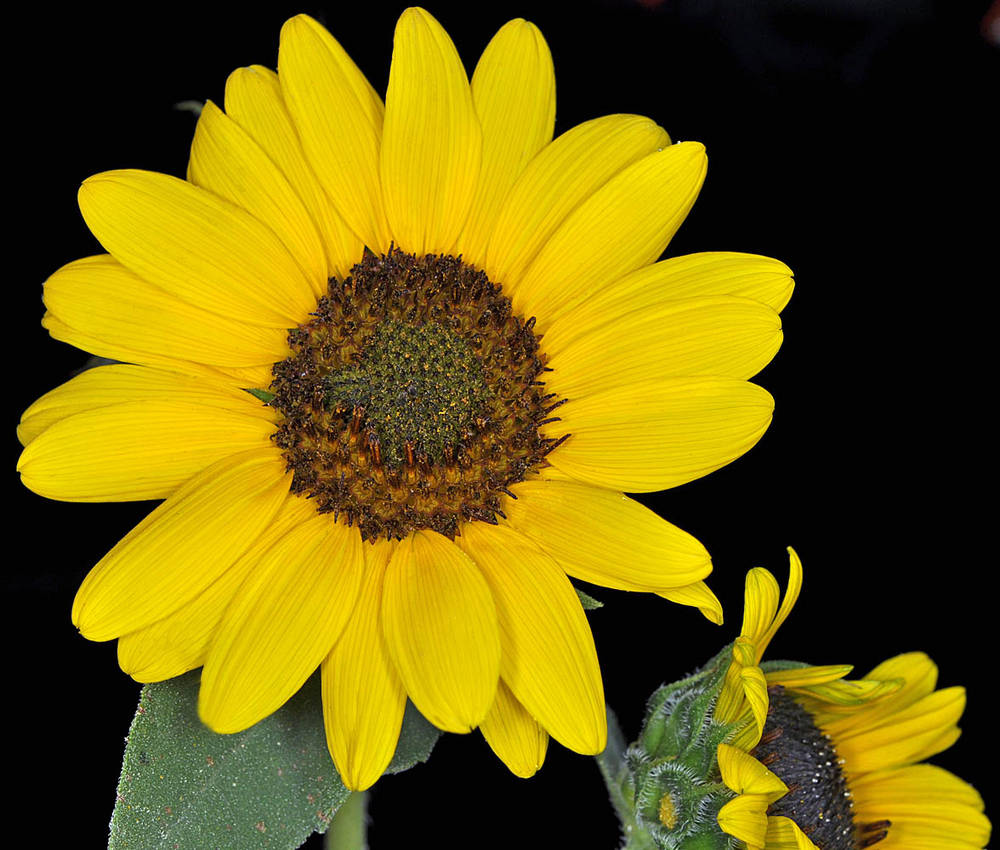Helianthus annuus
common sunflower
erect, pustulose-hispid.
mostly alternate;
proximal pairs usually opposite, triangular to ovate or lanceolate, 3–30+ cm, bases truncate or rounded to attenuate;
margins entire to serrate-dentate or denticulate;
tips acute;
surfaces spiculate or pustulose-hispid, sometimes setose on veins;
petioles 1–7 cm.
hemispheric, 15–40+ mm in diameter.
12–30+;
rays 25–50 mm.
50+;
corollas 5–8 mm;
throats ± bulbous at base, gradually widened distally;
lobes usually reddish;
anthers dark;
style appendages yellow to dark.
20–30(10) in 3+ series; ovate to lance-ovate, 10–25 × 5–8 mm;
margins hispid-ciliate;
tips acuminate;
surfaces scabrous or hispid, rarely glabrous; outer gradually shorter.
3–10+ mm, glabrate, pappi of 2 lanceolate scales, 2–3.5 mm, with 0–4 additional smaller scales.
solitary to numerous.
glabrous or hispid; inner tips 3-toothed.
=34.
Helianthus annuus
Shrublands, pastures, banks of rivers and lakes, marshes, roadsides, disturbed areas. Flowering Jun–Sep. 0–1600 m. BR, BW, Col, CR, ECas, Lava, Owy, WV. CA, ID, NV, WA; throughout North America. Native.
Helianthus annuus is one of the few North American natives to become a major cultivated crop. Sunflower seeds were exported from North America as early as the 16th century and are grown in much of the world both for their seeds and oil.
Kenton Chambers
- Local floras:
BC,
CA,
OR,
WA
- Local Web sites:
CalFlora,
CalPhotos,
Flora NW,
PNW Herbaria,
Turner Photog.
WildflowerSearch
iNaturalist (observations)
USDA Plants Database
- LBJ Wildflower Center
- SEINet
- Plants of the World Online
- Encyclopedia of Life
- Wikipedia
- Google Image Search



